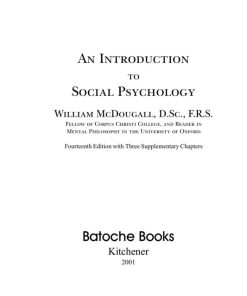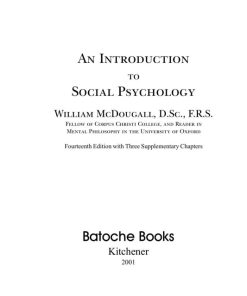An Introduction to the History of Psychology 7th edition by Hergenhahn, Tracy Henley ISBN 1133958095 978-1133958093
$50.00 Original price was: $50.00.$25.00Current price is: $25.00.
Authors:B. R. Hergenhahn, Tracy Henley , Series:Psychology [100] , Tags:Education › Teaching › General Education / Teaching / General Music / Genres & Styles / Classical , Author sort:B. R. Hergenhahn, Tracy Henley , Languages:Languages:eng , Publisher:Cengage Learning , Comments:Comments:Publisher, Psychology & Helping Professions: Jon-David Hague Developmental Editor: Ken King Assistant Editor: Paige Leeds Editorial Assistant: Amelia Blevins Associate Media Editor: Jasmin Tokatlian Senior Brand Manager: Liz Rhoden Market Development Manager: Christine Sosa Manufacturing Planner: Karen Hunt Rights Acquisitions Specialist: Tom McDonough Design, Production Services, and Composition: PreMediaGlobal Text Researcher: Pablo D’Stair Cover Image: The cover illustration is a detail of the head of Venus from “The Bath of Venus and Mars,†Giulio Romano, Palazzo del Té, Mantua, Scala/Art Resource, N.Y.
An Introduction to the History of Psychology 7th edition by Hergenhahn, Tracy Henley- Ebook PDF Instant Download/Delivery. 1133958095, 978-1133958093
Full download An Introduction to the History of Psychology 7th edition after payment

Product details:
ISBN 10: 1133958095
ISBN 13: 978-1133958093
Author: Hergenhahn,Tracy Henley
Dreams puzzled early man, Greek philosophers spun elaborate theories to explain human memory and perception, Descartes postulated that the brain was filled with “animal spirits,” and psychology was officially deemed a “science” in the 19th century. In this Seventh Edition of AN INTRODUCTION TO THE HISTORY OF PSYCHOLOGY, authors Hergenhahn and Henley demonstrate that most of the concerns of contemporary psychologists are manifestations of themes that have been part of psychology for hundreds–or even thousands–of years. The book’s numerous photographs and pedagogical devices, along with its biographical material on key figures in psychology, engage readers and facilitate their understanding of each chapter. Available with InfoTrac Student Collections https://gocengage.com/infotrac.
An Introduction to the History of Psychology 7th Table of contents:
Chapter 1: The Beginnings of Psychology
-
Introduction to the History of Psychology
- Defining psychology and its evolution as a discipline
- Psychology’s roots in philosophy, physiology, and biology
- The role of early pioneers in shaping the field
-
Pre-Scientific Psychology: Early Ideas
- Ancient ideas about the mind and behavior
- Contributions from Greek philosophers like Plato, Aristotle, and Socrates
- The influence of early Egyptian, Indian, and Chinese thought on psychology
Chapter 2: The Birth of Modern Psychology
-
Psychology as a Science: The 19th Century Revolution
- The role of Wilhelm Wundt and the founding of the first psychology laboratory
- The establishment of psychology as a separate scientific discipline
- Structuralism and introspection as early methods of psychological inquiry
-
The Rise of Psychology in America
- Key figures such as William James and John Dewey
- The development of functionalism and its influence on American psychology
- The growth of psychological research in universities and research institutes
Chapter 3: Psychophysics and the Development of Measurement
-
The Founding of Psychophysics
- The work of Ernst Weber and Gustav Fechner in the development of psychophysics
- The study of sensation and perception as an objective science
- The role of psychophysics in establishing experimental psychology
-
The Measurement of Mental States
- Early attempts to measure mental phenomena and intelligence
- The role of reaction time experiments in studying consciousness
- The development of psychological tests and tools
Chapter 4: Structuralism and Functionalism
-
The Structuralist School: Wundt and Titchener
- Wundt’s theory of psychology and his laboratory experiments
- Edward Titchener and his influence on American psychology
- The method of introspection and its criticisms
-
Functionalism: William James and John Dewey
- William James’ contribution to the functionalist perspective
- The emphasis on adaptive behavior and consciousness
- John Dewey and the influence of pragmatism on psychology
Chapter 5: Psychoanalysis and Early Schools of Thought
-
Sigmund Freud and Psychoanalysis
- Freud’s early life and the development of his theory of the unconscious
- The core concepts of psychoanalysis: repression, defense mechanisms, and the id, ego, and superego
- The impact of psychoanalysis on the treatment of mental illness and its cultural influence
-
Other Early Schools of Thought
- Behaviorism, Gestalt psychology, and humanistic psychology
- Key figures: John B. Watson, B.F. Skinner, Max Wertheimer, Kurt Koffka, and Wolfgang Köhler
- The shift from introspection to observable behavior and mental processes
Chapter 6: Behaviorism and Its Influence
-
The Rise of Behaviorism
- The influence of John B. Watson and his behaviorist manifesto
- The principles of classical conditioning (Pavlov) and operant conditioning (Skinner)
- Behaviorism’s dominance in American psychology during the early 20th century
-
Criticisms of Behaviorism
- The limitations of behaviorism and its criticism by humanistic psychologists and cognitive scientists
- The rise of cognitive psychology as a reaction to behaviorism
- The legacy of behaviorism in contemporary psychology
Chapter 7: Humanism and the Third Force in Psychology
-
The Humanistic Movement
- The birth of humanistic psychology with figures like Carl Rogers and Abraham Maslow
- Key ideas: self-actualization, the human potential movement, and the focus on personal growth
- The influence of humanism on counseling and therapy
-
The Rise of Positive Psychology
- The later development of positive psychology as an extension of humanistic ideas
- Focus on happiness, well-being, and human flourishing
- Key figures: Martin Seligman and others
Chapter 8: Cognitive Psychology
-
The Cognitive Revolution
- The shift from behaviorism to cognitive psychology in the mid-20th century
- The influence of Noam Chomsky, George Miller, and Ulric Neisser on cognitive psychology
- The study of mental processes such as perception, memory, language, and problem-solving
-
The Cognitive Neurosciences
- The rise of brain imaging techniques and the study of the brain’s role in cognition
- Cognitive neuroscience and the integration of psychology with neuroscience
- The relationship between the mind, brain, and behavior
Chapter 9: Psychology in the 21st Century
-
The Contemporary Landscape of Psychology
- Modern trends in psychology, including multiculturalism, evolutionary psychology, and neuropsychology
- The integration of different psychological approaches and the push for interdisciplinary research
- The increasing emphasis on evidence-based practices in therapy and clinical settings
-
The Globalization of Psychology
- The expansion of psychological research and practice worldwide
- Cross-cultural psychology and the study of universal and culturally specific aspects of psychology
- The role of psychology in addressing global challenges such as mental health, education, and human rights
Chapter 10: Conclusion
- The Evolution of Psychology
- Reflections on how psychology has developed over time
- The continuing influence of historical figures and schools of thought
- Psychology’s future as a discipline and its relevance in addressing modern societal issues
People also search for An Introduction to the History of Psychology 7th:
hergenhahn’s an introduction to the history of psychology
hergenhahn’s an introduction to the history of psychology 8th edition
hergenhahn’s an introduction to the history of psychology 9th edition
hergenhahn’s an introduction to the history of psychology pdf free
hergenhahn’s an introduction to the history of psychology eighth edition
You may also like…
eBook PDF
An Introduction to Theories of Personality 7th Edition by Robert Ewen 184169746X 9781841697468
eBook PDF
An Introduction to Social Psychology 1st edition By William McDougall ISBN 1138851256 978-1138851252
eBook PDF
An Introduction to the History of Psychology 6th Edition by Hergenhahn 0495506214 978-0495506218
eBook PDF
An Introduction to Social Psychology 1st Edition by William McDougall 113885123X 9781138851238












